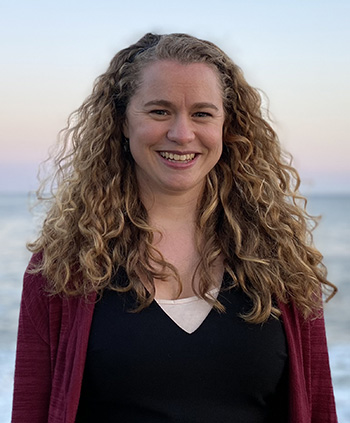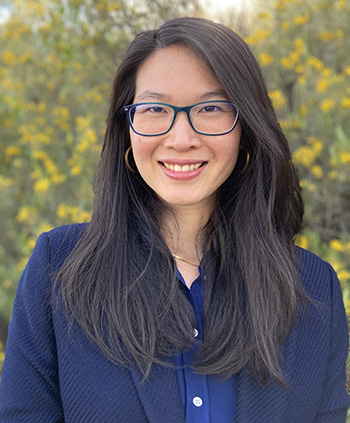Campus News
Postdoctoral fellowships support planetary science research
Emily Martin and Melodie Kao have won 51 Pegasi b Fellowships to support their research on exoplanets.


The Heising-Simons Foundation has awarded 51 Pegasi b Fellowships to Emily Martin and Melodie Kao to support their postdoctoral research in astronomy and astrophysics at UC Santa Cruz starting in fall 2021.
Established in 2017, the Heising-Simons Foundation 51 Pegasi b Fellowship is named for the first exoplanet discovered orbiting a sun-like star. The growing field of planetary astronomy studies objects both within and beyond our solar system, bridging planetary science and astronomy. From improving our understanding of planetary system formation and evolution, to advancing new technologies for detecting other worlds, 51 Pegasi b Fellows make a unique contribution to the field.
In her fellowship, Emily Martin will pioneer a method to directly compare solar system planets to exoplanets using a novel instrument she developed for Lick Observatory, called PEAS (The Planet as Exoplanet Analog Spectrograph). She said she looks forward to creating new technology that assists her peers in pursuing new scientific avenues.
“I love the cooperative spirit behind instrumentation, and that it enables all different kinds of science,” Martin said. “It feels so impactful to contribute to multiple parts of the planetary science field.”
Martin spent six years contributing to the upgrade of the Near Infrared Spectrograph (NIRSPEC), which operates out of the W.M. Keck Observatory in Hawaii. This workhorse instrument gathers broad-ranging data on astrophysical objects including comets, exoplanets, newly forming stars, and some of the most distant galaxies.
“I’ll always value my time spent collaborating with a team to upgrade NIRSPEC. It felt so gratifying to see it all come together after working so hard for so long,” Martin said. She earned her Ph.D. in astronomy at UCLA in 2018 and has since been pursuing postdoctoral research at UC Santa Cruz.
Melodie Kao is developing new strategies to assess the engines that generate the magnetic processes and environments of planet-like objects, and to interpret exoplanet radio detections. As a graduate student, she used radio observations to show that powerful displays of aurora can occur on brown dwarfs—failed stars with magnetic behaviors akin to exoplanets.
“When I first analyzed what became the telltale smudge of an aurora on a free-floating planetary mass object, there was a peculiar experience that became harder and harder to ignore—almost like the reality of what we found was oozing into my consciousness,” she said.
In her fellowship, Kao will further develop radio observations to illuminate the engines that generate magnetic processes in both brown dwarfs and exoplanets. In conjunction, she will investigate their aurorae, as well as the physics occurring in their magnetospheres (the region of space influenced by an object’s magnetic field). Understanding such magnetic behaviors will provide a key missing ingredient for fully characterizing exoplanetary systems.
“When I do science, it’s like tending to a garden,” Kao said. “You nurture the question that alighted in your brain until, one day, the data you’ve collected blooms and offers its secret to you. It always feels like a big responsibility to introduce this knowledge to the world.”
Kao received a Ph.D. in astrophysics from the California Institute of Technology in 2017 and is currently a NASA Hubble Postdoctoral Fellow at Arizona State University. She will begin her 51 Pegasi b Fellowship appointment at UCSC in fall 2021.
The 51 Pegasi b Fellowship provides exceptional postdoctoral scientists with the opportunity to conduct theoretical, observational, and experimental research in planetary astronomy. The fellowship award provides:
- Up to $375,000 of support for independent research over three years.
- Time and space to establish distinction and leadership in the field.
- Mentorship by an established faculty member at the host institution.
- An annual summit to develop professional networks, exchange information and ideas, and foster collaboration.
The Heising-Simons Foundation is a family foundation based in Los Altos and San Francisco, California.